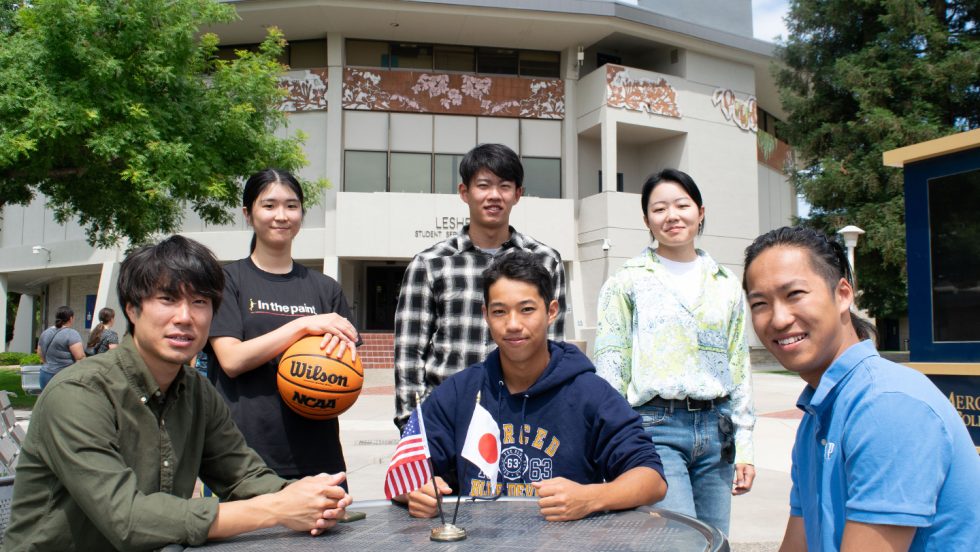Merced, California and Kyoto, Japan are nearly 5,500 miles apart, but their research universities’ shared goals to improve society is bringing them together. A new agreement between institutions of higher education in both cities will foster collaboration among researchers and an exchange of students.
Kyoto University, in the 10th largest city in Japan and routinely ranked among the world’s top 100 universities, has strengths in addressing global scale problems through research and education. UC Merced and Merced College separately signed memoranda of understanding with Kyoto University this spring. UC Merced’s agreement is between the university’s Graduate School Division and School of Engineering with The Graduate School of Advanced Integrated Studies in Human Survivability (GSAIS) at Kyoto University.
“We are thrilled to partner with Kyoto University’s Graduate School of Advanced Integrated Studies in Human Survivability,” Vice Provost and Dean for Graduate Education Hrant Hratchian said. “This international and interdisciplinary collaboration will provide invaluable opportunities for our graduate students, postdoctoral scholars and faculty.”
The “agreement for academic cooperation and exchange” calls for the universities to exchange scientific materials, publications and information, as well as faculty members, researchers and students, and to conduct joint research and meetings.
According to Professor Yosuke Alexandre Yamashiki of Kyoto University, GSAIS has accomplished outstanding research in evaluating the environmental impact of the nuclear power plant accident at Fukushima, and has worked in the areas of water quality management and applying those technologies into space exploration.
“Both graduate schools have agreed to promote research in the field of specific field in water resources management state-of-art technologies in water monitoring, as well as promoting comprehensive research in different fields,” said Yamashiki.
Yamashiki is an international scholar in his own right, understanding the importance of elevating scholarship from one case study to the global scale. Josh Viers, Associate Dean for Research in the School of Engineering at UC Merced, collaborated with Yamashiki through the U.S.-China Clean Energy Research Center for Water-Energy Technologies (CERC WET) program, bringing scientists from China, Japan and the U.S. together around water management and accounting issues.
“It’s one thing to observe issues in one environmental context, but then to bring ideas through the fire of different cultural, economic and regulatory bounds forges the greater strength and utility in the findings, as well as the researchers,” said Viers.
Though the agreement initially focuses on the Graduate Division and School of Engineering, there will be opportunities for overlap with other areas of study. In addition to providing collaborative opportunities for students and faculty at all the involved campuses, these pacts help bring the research conducted to a global audience.
Officials from both of the Merced campuses said the MOU will expand the reach of all the involved entities.
“The MOU between UC Merced and Kyoto University strengthens relationship between the two universities and provides opportunities for students and faculty on both universities to engage in high-impact research,” said Rakesh Goel, dean of the School of Engineering at UC Merced.
The Merced College MOU with Kyoto University calls for the schools to explore the development of an exchange program for students and faculty members engaging in transdisciplinary education; to support the collaboration between UC Merced and Kyoto by supporting cultural education; and to explore the feasibility of short-term classes in space/astronomy and environmental science.
Over the past 25 years, Merced College has hosted more than 1,000 Japanese students from many different schools.
“Merced College has a long history of partnering with educational institutions in Japan,” said Chris Vitelli, Merced College president. “We are thrilled to add Kyoto University as a valued partner in higher education. We look forward to forging meaningful pathways and support services for Kyoto students to study abroad through this new partnership.”
